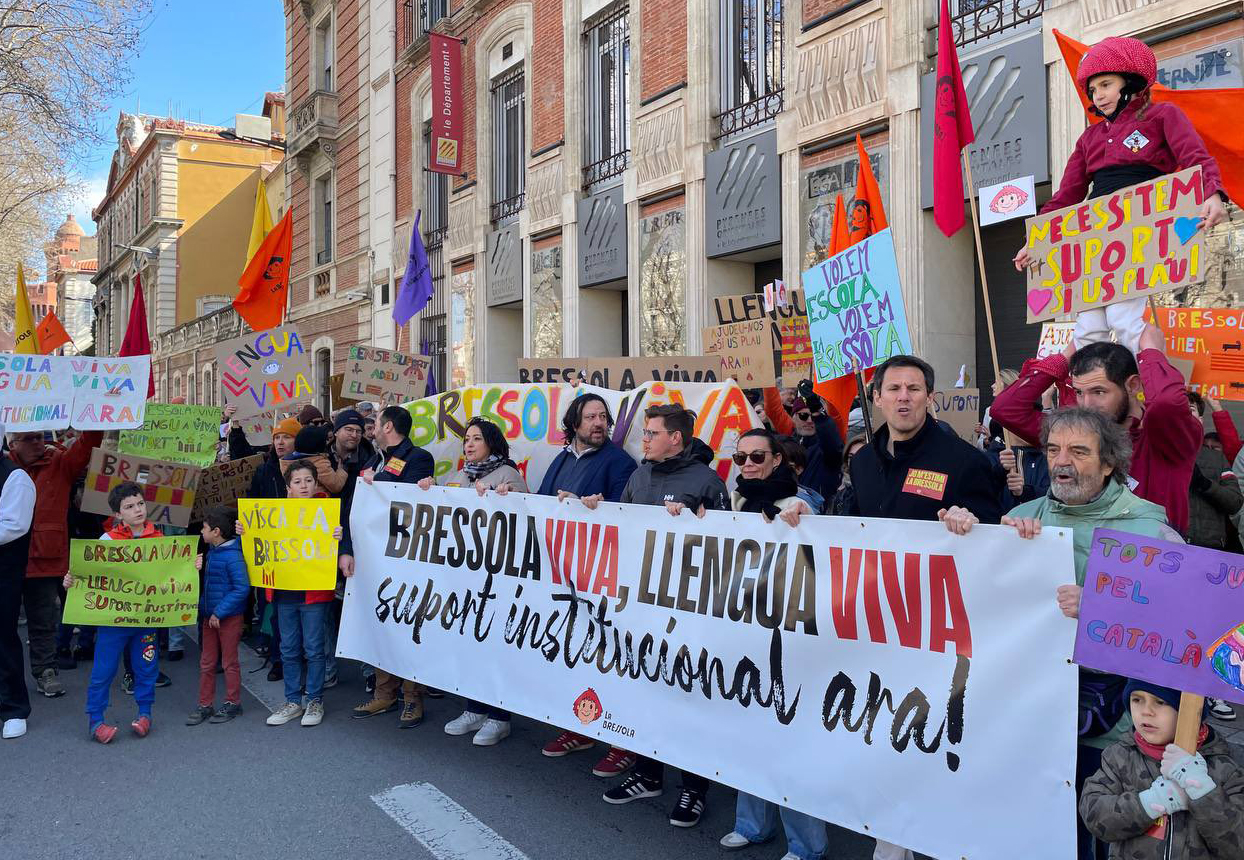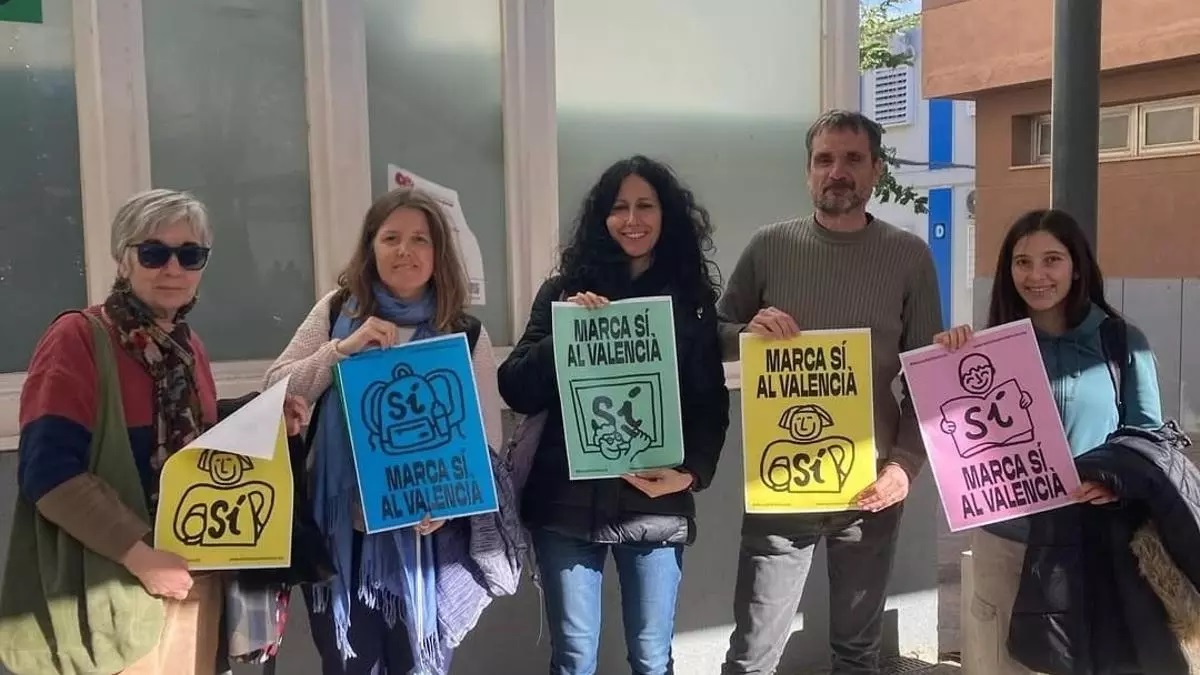Catalan linguist Carme Junyent dies
- He died on September 3 from pancreatic cancer. The linguist has spoken rigorously about the dangers of the disappearance of Catalan and his brutal messages generated discomforts. He has fought for his language until the last moment. He calls for the right to be respected in Catalan in the last moments of his life, through an article published in Vilaweb after his death.

Carme Junyent Figueras Masquefan was born on 4 February 1955 in the region of Anoia, in the centre of Barcelona. He lived in Barcelona until his death. He has been a highly renowned linguist in the Catalan countries, who has shown his support and opposition. He came to Euskal Herria often to give lectures. Expert in African languages. It cultivated a lot of threatened languages and languages of immigration. He was director of the group Grup d’Estudi de Llengües Amenaçades (GELA) and linguist at the University of Barcelona.
In February 2020, we published a long personal interview in Larrun magazine. So, as on many other occasions, he told us about the vulnerability of Catalan. He acknowledged that he did not know if his grandchildren were going to do it in Catalan, that is, if you want to save the Catalan there are good reasons not to fall asleep. He severely criticized the Department of Education of Catalonia, which in many centers did not guarantee teaching in Catalan. He did not find a model for saving languages in the world, and his proposal was to take the Spanish-Catalan binomial and walk towards a multilingual community.
Dying in Catalan
At the end of a long sixteen page interview in Larrun magazine, the journalist says: “You want to live in Catalan” and his answer: “Yes, and we have to find a way to ensure that. For example, if I have to die in the hospital, I want to die in Catalan.”
There, the Catalan linguist is in that situation. He has upheld the right to die in Catalan and has had him spend the last days of his life in health centers and among health personnel. Before his death he left an article written on this altar which has been published by Vilaweb after his death.
The article shows its concern because it considers that in recent years it is increasingly difficult to live in Catalan in the last days of life, which are the hired caregivers or who are health workers of the administration itself. It recalls and claims the right to be attended in Catalan, and demands the administration to guarantee this right, “because the future of Catalan is one of the examples that is not in our hands [in the hands of the citizens]”. It indicates that respect for one's own language is within the realm of health. In addition to claiming the right, she has had linguistic experiences with health personnel during her illness. One of them tells about the relationship with a doctor who has gone home. The doctor did him in Spanish and Junante always in Catalan. One day the doctor asked him if he had any problems with Spanish, and Junente-Maritime answered yes: he fought his whole life so that citizens could die in Catalan and in his turn he said “I have to be consistent”. He explained to the doctor who studied threatened languages and believed that he could also help patients if at such a special time in his life he spoke in his language. He gave the doctor the book "El futur del català depèn de tu."
During the illness, he fights with the health staff to do so in Catalan and his doctor advises him not to waste strength. “Difficult,” says Junante. When he is taken to the hospital, the doctor asks him to do so in Spanish and answers: “I ask you if you don’t mind me not dying in Catalan. He told me it's to better serve me. Here the first ethical reflection has appeared: what language should preferably be used, that of the patient or the doctor?”
Junente meets significant linguistic personalities who have not had the opportunity to die in Catalan and so says at the end of the article: “We owe that commitment to them and to all, so that they do not leave behind at crucial moments and live the last experience as the first.”
Milatik gora lagun bildu ziren larunbatean Ipar Kataluniako Perpinya herrian La Bressola ikastetxeak defendatzeko. Murgiltze eredua katalanez eskaintzen duten ikastetxe horiek arrazoi ekonomikoengatik larrialdian daudela adierazi dute eta erakunde publikoei eskatu diete babes... [+]
Lagun asko sumatu dut kezkatuta euskaldun gero eta gutxiagok ahoskatzen duelako elle-a. Haur eta gazte gehienek bezala, heldu askok ere galdu du hots hori ahoskatzeko gaitasuna, idatzian ere nahasteraino. Paretan itsatsitako kartel batean irakurri berri dugu: altxorraren biya... [+]
“Askatasunaren” izenean, ikastetxean zein oinarrizko hizkuntza nahi duten galdetu diete guraso valentziarrei. Helburua katalana zokoratzea zen. PPren eta Voxen gobernuak ez du lortu. 33 eskualdeetatik 22tan katalana gailendu da. Emaitzarekin oso pozik agertu dira... [+]
570.000 familiak euren haurren ikasgeletako hizkuntza nagusia zein izango den bozkatzeko aukera dute martxoaren 4ra arte: gaztelera edo katalana. Garikoitz Knörr filologoaren eta euskara irakaslearen arabera, kontsultak "ezbaian" jartzen du katalanaren zilegitasuna... [+]
The Catalan linguist Carme Junyent died last September. We have followed closely what he said about language policy here, hoping that we will ever dare to implement some of his proposals. I was behaving without burnings. Many examples have been gathered in this journal: ARGIA... [+]




















